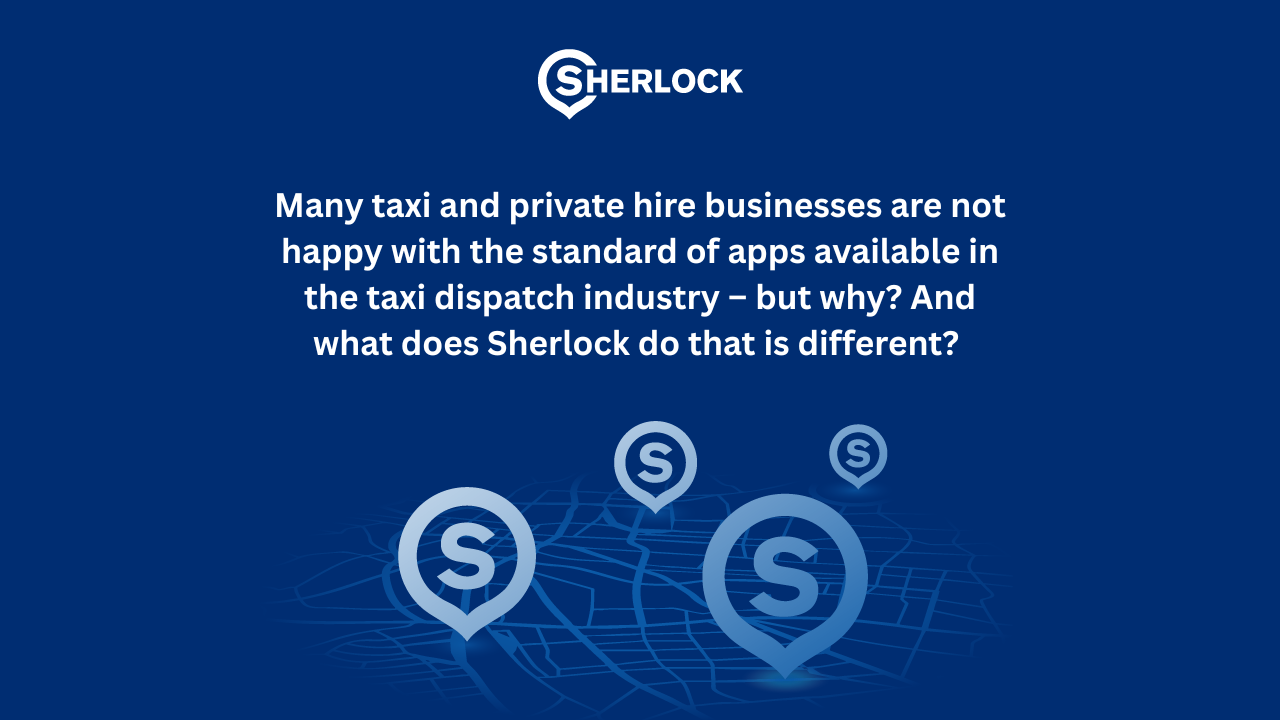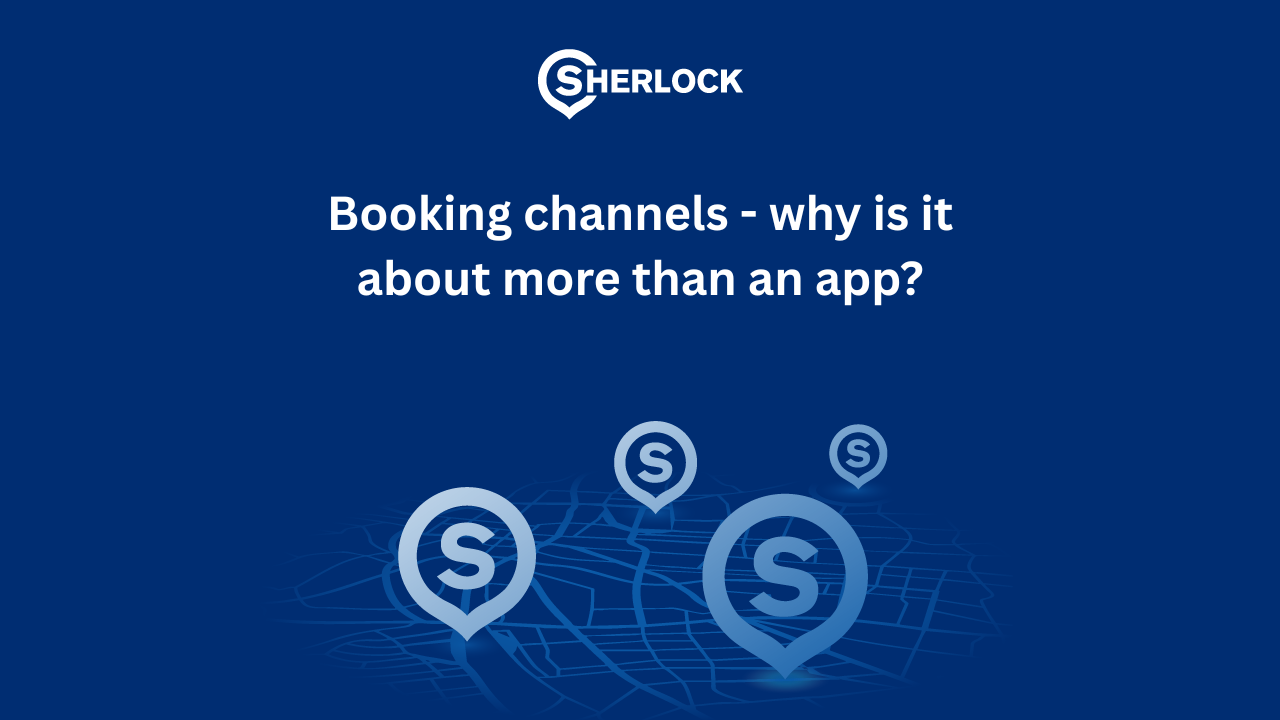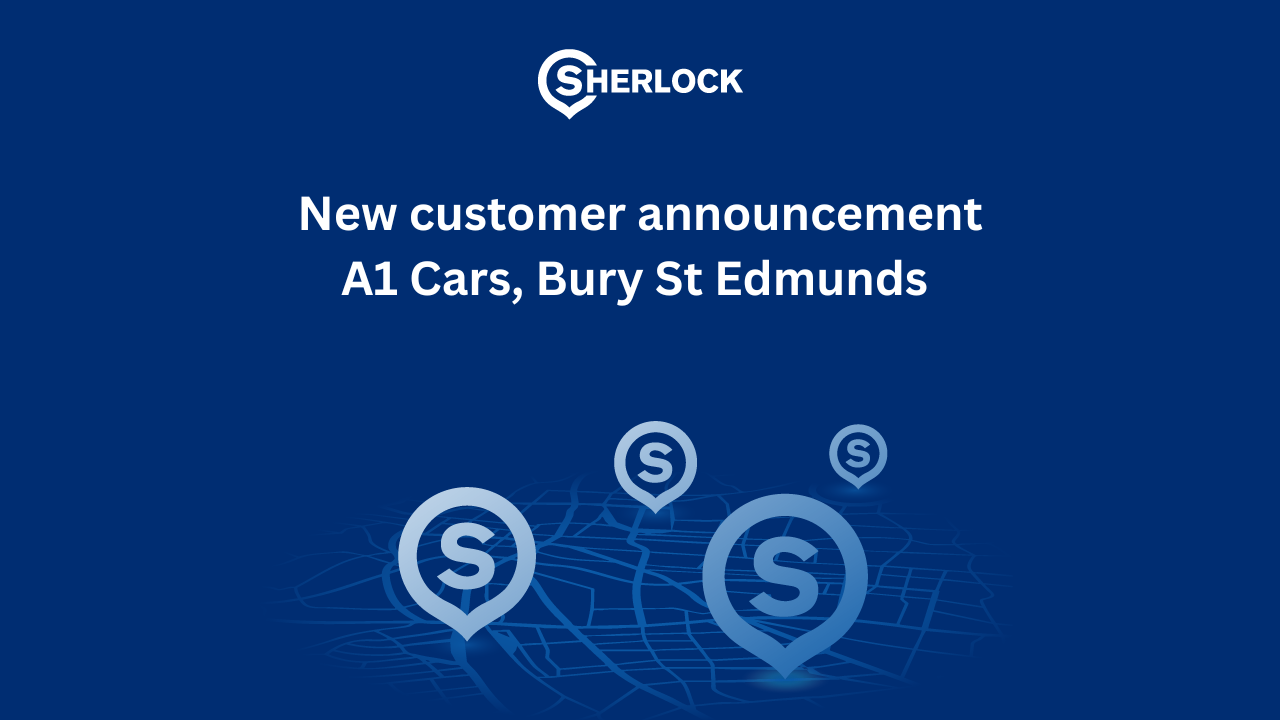Everything you need to know about auto-allocation, traditional zonal systems and Sherlock's best driver.
Is it difficult to dispatch bookings efficiently and to the best driver when you’re at your busiest? Perhaps you want to grow your business, but you are limited by poor technology which means you can’t manage more bookings with existing staff numbers?
Many traditional systems still depend entirely on zonal or plot-based allocation—dividing geographic areas into 'plots' and limiting job offers to drivers within those boundaries. The problem with relying on this is twofold.
It is inefficient because a driver just outside of the plot boundary may be closer to the pick-up than any driver within it yet will not be considered for the job. Drivers know this and will often call dispatch to question allocation decisions when he/she believes another driver may be closer.
This isn’t necessarily a big problem when your business is quiet, but if your drivers do this during your peak and busiest periods it creates unnecessary extra work whilst undermining driver confidence in automation.
Sherlock’s Business Director, Mike Tobin notes,
“When you’re quiet, plot-based allocation may work effectively for ‘fair’ distribution of work for your drivers, but it won’t be prioritising the closest vehicle for the customer as driver waiting time will be the priority. This means that response times for customers can be longer.
When you’re at your busiest is when automation is most needed. At these times, drivers tend to not care about their queue position as they will go from empty to receiving a job quickly as there is plenty of work to go around. Depending on where the job is, they might think there is a closer driver and call the office. Some of the time, the office confirms they are the best and closest driver, but sometimes the office might agree that there is a better driver for the job about to become available and reallocate it.
There are several problems with this: office staff get bogged down with manual reallocation, drivers lack of confidence in automation is reinforced and the customer is not getting the closest car with the quickest response time.”
Sherlock’s ‘best driver’ allocation is a major step forward from outdated systems and has been at the forefront of automated dispatch from the very beginning. It can be configured to efficiently manage thousands of drivers and ensure they all get the most suitable job automatically allocated to them.
Sherlock’s auto-allocation is so efficient that a customer who recently launched in the UK noted, within hours of going live,
“The automation and allocator are excellent—they perform exactly as expected. When we're at our busiest, the system makes the fleet more efficient and keeps jobs moving smoothly. It's clear that the automation is doing what it was designed to do, helping us handle high demand whilst giving customers the lowest response times and ensuring drivers are working efficiently.”
Other systems may claim to offer closest car allocation as an alternative but when it comes to actually using the system, they often fail to optimise fleet-wide efficiency as the fleet is not considered in its entirety.
For us at Sherlock, the key to managing bookings and maximising efficiency is building trust in the automation through configurable dispatch that aligns with your operational goals.
Sherlock’s ‘best driver’ algorithms are developed by the same in-house team that developed the industry’s first auto-allocator for London’s Addison Lee in the early 2000s; an allocator that was so successful, it enabled Addison Lee’s rapid scale from 1,000 to 7,000 vehicles and automated allocation of nearly 40,000 trips per day.
Working in partnership with Addison Lee, our developers observed their highly experienced controllers to see how they made allocation decisions and translated their expertise and decision-making processes into automated logic. Our aim was to accurately replicate expert controller knowledge and harness technology to power scalable growth and we were fortunate that the client had the means and will to invest in development to ensure the accuracy of the allocator.
The theory behind the auto-allocator was about more than simply picking the geographically closest driver, the allocator would consider multiple criteria to make the best allocation decision such as distance to pick-up, driver empty time and even the location of the drop-off address.
Additionally, the grade of both customers and drivers can be considered, so for example, a customer from a high valued corporate account can be weighted as a higher priority than retail bookings. The customer grade can even allow for allocation based on individual level (e.g. prioritising the CEO’s bookings over another member of staff). Driver grades can also be reflected in decisions so that high performing drivers can be prioritised for high value accounts.
The auto-allocator processes these variables in real-time – across all drivers and jobs, including both pre-booked and on-demand jobs – to ensure optimal fleet use and customer satisfaction.
We call this allocation logic ‘best driver’, and its core principle is simple: configurable algorithms that let businesses tailor dispatch to what matters most to them, while enhancing overall fleet performance.
This allocation is so efficient at dispatching trips that one client achieves 100% automated dispatch 24/7 every single day of the year.
Central Taxis, Coventry remarked,
“with the rise of app-based platforms like Uber and Bolt, Sherlock’s allocator gives us the opportunity to have 100% automation which promotes driver confidence in total transparency.”
Other clients have commented on the power of Sherlock’s auto-allocator with Gary Brand of A&B Taxis noting,
“I chose Sherlock for the dispatch algorithms. I visited Addison Lee’s control room, and they had something the competition didn’t have.”
Sherlock’s auto-allocation goes even further.
To drive up automation and efficiency to maximum levels, we introduced bids and offers. On occasion, the system may find it difficult to find an appropriate driver to dispatch a job to based on the configured primary allocation settings. Rather than deferring immediately to a controller, allocation can use bids and offers in which drivers can either bid to do trips outside of their radius or offer to take on the job. These features drive up automation and efficiency for the fleet and customer.
Other examples of automated allocation logic which is unique to Sherlock include a feature we built for a customer, A&B Taxis in Essex, UK. Owner of A&B, Gary Brand calls the feature 'supermarket logic.' This logic is applicable to any location which is busy with many passengers needing picking up at the same time, for example, at supermarkets, train stations or event venues.
Previously, passengers were not always picked up in the correct order. At times, a passenger who booked second would get their driver before the driver for passenger one had arrived. To avoid this problem, Sherlock’s development team designed a feature in which a driver would be allocated to a pick-up address initially and once at the location, allocated to a passenger.
Gary from A&B had asked many dispatch providers about a way of allocating work to ensure passengers in one location would be picked up in the correct order, but no company had been able to provide a solution until Sherlock. Gary remarked,
“I’ve wanted the supermarket logic feature for 24 years and every provider has told me that what I wanted wouldn’t be possible, but Sherlock has developed it, implemented it and it works exactly how I want it to. I think it is one of the single biggest changes in dispatch logic for the past 20 years.”
Other customer success stories as a result of Sherlock’s auto-allocation include:
- Client with 100% manual allocation reached over 90% automated dispatch within three months of using Sherlock
- 20% increase in number of trips completed since introducing auto-allocation
- 30% increase in driver earnings through increased automation leading to drivers completing more trips during their shifts
- 99% automated allocation achieved leading to phenomenal fleet growth (500% over six years)
Sherlock isn’t ‘just another system’—it has been developed in partnership with the industry over several years to refine and optimise allocation technology.
Contact us today to see how it works.
#taxidispatch #automation #efficiency



